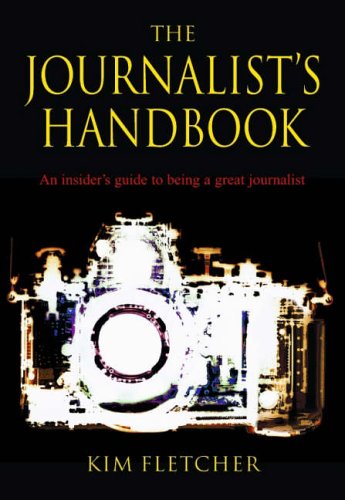 The book has two parts, roughly separated in practicalities and issues. Though the whole book is about practicalities, the second part deals with the Press Complaints Commission and its guidelines, moral issues, the difficulties of knowing the audience’s interests, the rise of the internet with new possibilities and its limits.
The book has two parts, roughly separated in practicalities and issues. Though the whole book is about practicalities, the second part deals with the Press Complaints Commission and its guidelines, moral issues, the difficulties of knowing the audience’s interests, the rise of the internet with new possibilities and its limits.
The first part is focussed on individual skills as to how to improve writing and reporting, expanding to the topics on how to get into journalism as a profession.
It is the second part which is really usefull for beginners with a richness of examples and case studies.
The book is recommendable for students and wanna-be journalists, the second part may also be of some relevance to initiate discussions amongst more experienced reporters and journalist colleagues.
What i liked about the book is that it is quite readable in contrast to the other books i currently read, it is an effortless fly-through, as the content is relevant, with lots of examples, the language is simple, most chapters are short or have vox-pox like inserts, and the style is positive, which is astonishing. Astonishing, because when Kim Fletcher appeared at the Guardian Media Conference, he came over rather disillusioned and negative, even a bit sarcastic.
His face was rather brown pigmented, I wondered if it was due to sun exposure or liver failure.
Older journalists in the profession are in general still perceived as drinking a lot as a side effect of their job.
Of course liver disease can also come of other causes, such as malaria and other tropical illness or longterm drug use (any drug being heavy on the liver including e.g. anti-epileptic drugs), but usually it is associated with accumulation of bilirubin which has a yellowish undertone.
Unfortunately i wasn’t able to examine the underlying causes more detailled as i did not come close enough. It just left me wondering.
Well, maybe they all came back from some exciting international reporting assignment or holiday in the sun.
In Richard Keeble’s book:“ethics for journalists” he writes on page 99:
“In 1999, the Fleet Street consensus again backed the US/UK attacks this time on Yugoslavia (with the Guardian proving one of the most jingoistic) and called for a ground assault. Only the Independent on Sunday opposed the war, and its editor (Kim Fletcher) was sacked just days after the bombings ended.”